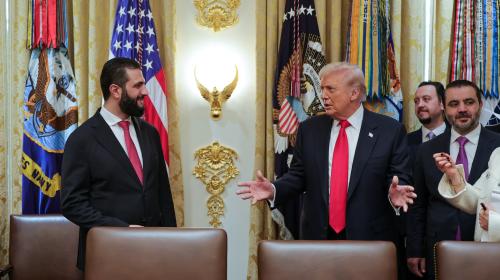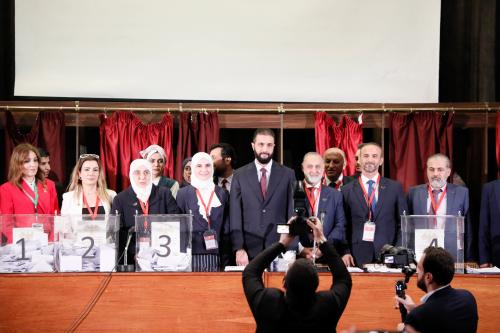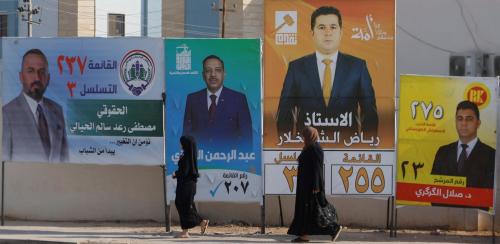Iran’s new foreign minister, Mohammad Javad Zarif, has taken to social media to publish a brief, stinging missive castigating the prospect of American intervention in Syria. The statement underscores Iran’s residual bitterness over its own experience with chemical weapons and its leadership’s indignation over what it sees as the profoundly destabilizing application of American power and international law to the Middle East.
I won’t indulge in debating Zarif’s points here, although I think it is both fascinating and heartening that thousands of others (mostly Iranians) already have engaged him from seemingly every possible angle, in what has transformed into an unprecedented back-and-forth. If you are not one of the more than 98,000 who have “liked” Zarif’s Facebook page, you can find a reprint of the statement here, or read an initial recap of the social media debate that it spawned prepared by the indispensable Iranwire. And I give credit to the foreign minister for using Facebook — which like other social media sites is heavily filtered in Iran and has been denounced by some within the regime as a mode of subversion — to extend and expand the lively debate over foreign policy that took place during Iran’s recent presidential election. I hope it is yet another sign of that moderation is returning to the driver’s seat of Iranian policymaking. (It also seems a clever way to sidestep the Friday prayers’ monopoly during the weekend publishing lull in Iran.)
However, even in Iran, talk is cheap. Whatever one thinks of Zarif’s arch points about American hypocrisy and recklessness, they are a critique rather than a constructive pathway to resolving the horrific tragedy and the ominous terror threat that is unfolding on Iran’s borders, with its government’s complicity. I’d like to challenge Zarif and the rest of the Iranian leadership to move beyond reiterating their government’s grievances and, for once, to invest whatever moral righteousness and strategic influence Tehran may be able to claim in promoting a peaceful and humane outcome in Syria and elsewhere across the region.
The sense of injustice runs deep among Iranians of widely divergent political stripes. It is one of two persistent, and frequently intertwined, themes of Iranian politics that seem to transcend time, place, ideology or any other distinction. Mossadegh’s deposition, the Shah, the war with Iraq: all these episodes and more are laid at the feet of nefarious outside powers. This undercurrent of persecution is occasionally attributed to the Shi’a doctrinal emphasis on suffering, although I suspect that may be overintellectualizing things; Iran’s actual struggles have provided more than sufficient rationale for the obsession with wrongdoings.
So it should hardly be surprising that some Iranian leaders are watching the ongoing debate over Syria with disbelief and even disgust. The apathy that greeted Iran’s own suffering at the hands of Saddam Hussein, and the effective complicity of Washington and other Western governments in facilitating his resort to chemical weapons against Iranian troops and his own population, remains keenly felt. As an earlier Facebook post by Zarif makes clear, this history informs Tehran’s umbrage at the role of the United Nations in penalizing Iran’s nuclear program, measures which its leaders see as yet another instance of double standards. And the fact that the Obama administration and other states have sought to base their case for action against Bashar Asad around the well-established norm against the use of chemical weapons only reinforces their perception that international norms and laws are mere props in the hands of the world’s sole remaining superpower.
Still, the fact is that Iran’s sense of grievance is matched by its sense of greatness. Almost irrespective of their political preferences, Iranians are deeply — and justifiably — proud of their history and are passionately convinced that their country deserves to play a leading role in the region, if not the world. And that’s precisely why Zarif’s Facebook post rings especially hollow. It is not enough to wallow in the wrongdoings wrought unto Iran by the world. A state that honored those who were lost as a result of such abuses would not facilitate similar crimes elsewhere. A state that intended to fulfill its people’s shared aspirations of leadership would summon its grief and indignation over its own sufferings to help fashion a more secure and hopeful future for all the people of the region. The denunciations of the use of chemical weapons in Syria issued in recent days by Zarif and other Iranian officials, including President Hassan Rouhani, are a step in the right direction, but they are nowhere near enough.
The Brookings Institution is committed to quality, independence, and impact.
We are supported by a diverse array of funders. In line with our values and policies, each Brookings publication represents the sole views of its author(s).




Commentary
Chemical Weapons And Claims of Hypocrisy: Iran’s Facebook Foreign Minister Tackles Syria
August 30, 2013